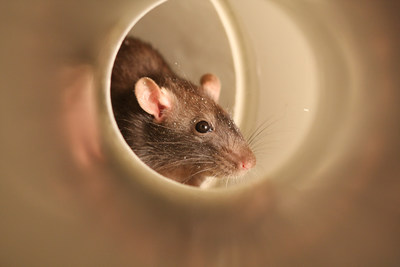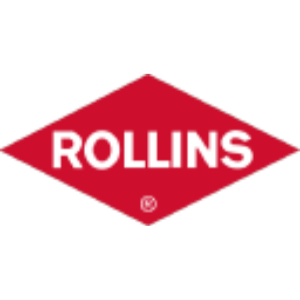The Rat Pack: Former Top Five Cities Remain Leaders on Orkin's 2021 Rattiest Cities List
Orkin released its 2021 Top 50 Rattiest Cities List, with Chicago ranking first for the seventh straight year. Los Angeles and New York follow in second and third positions, respectively. Notably, Cleveland enters the top 10 at #10, while Baltimore rises to #6. Portland, Maine, and Louisville, Kentucky, also debut in the rankings at #38 and #40. The rankings reflect the number of rodent treatments from September 2020 to September 2021. Increased rodent visibility during the pandemic prompted the CDC to issue guidelines for rodent prevention.
- None.
- None.
Insights
Analyzing...
ATLANTA, Oct. 21, 2021 /PRNewswire/ --
Spooky season is here, cue the rodents
Orkin released its Top 50 Rattiest Cities List today, and the top five cities didn't budge, with Chicago taking the top spot for the seventh consecutive time. Breaking into the Top 10 this year is Cleveland, taking the tenth spot, and Baltimore inches closer to the top five, moving up two spots to #6. New to the list is Portland, Maine, rising 26 spots to take #38, and Louisville, Kentucky, landing the list at #40, rising 13 spots from the previous year.
Orkin ranked metro regions by the number of new rodent treatments performed from September 15, 2020 to September 15, 2021. This ranking includes both residential and commercial treatments.
1. Chicago | 26. Columbus, Oh. |
2. Los Angeles | 27. Norfolk, Va. (-2) |
3. New York | 28. Richmond, Va. (+5) |
4. Washington, D.C | 29. Sacramento (+7) |
5. San Francisco | 30. St. Louis (+7) |
6. Baltimore (+2) | 31. Albany, New York (+7) |
7. Philadelphia | 32. Grand Rapids (-3) |
8. Detroit (-2) | 33. New Orleans (-12) |
9. Denver | 34. Flint, Mich. (+8) |
10. Cleveland, Oh. (+1) | 35. Raleigh, N.C. (-9) |
11. Seattle (+1) | 36. Nashville (-2) |
12. Minneapolis (-2) | 37. Champaign, Ill. (+2) |
13. Boston | 38. Portland, Me. (+26) |
14. Indianapolis (+1) | 39. Burlington, Va. (+8) |
15. Atlanta (-1) | 40. Louisville, Ky. (+13) |
16. Pittsburgh (+2) | 41. Buffalo, New York |
17. San Diego (+2) | 42. Charlotte (-11) |
18. Houston (-1) | 43. Phoenix (-11) |
19. Cincinnati (+3) | 44. Greenville, S.C. (-9) |
20. Dallas (-4) | 45. Green Bay |
21. Hartford, Conn. (+6) | 46. Syracuse (-2) |
22. Milwaukee (+2) | 47. Charleston, W.V. (+4) |
23. Miami (-3) | 48. Dayton (+1) |
24. Portland, Or. (-1) | 49. Albuquerque (-1) |
25. Kansas City (+5) | 50. Tampa (-9) |
During an unprecedented last year, the visibility of rodents increased, creating concern for homeowners and business owners alike. The pandemic-driven closure of restaurants forced rodents to find new food sources. Without food waste to consume, these pests were seen scavenging new areas and exhibiting unusual or aggressive behavior. The presence of rodents became so relevant that the Centers for Disease Control and Prevention issued Rodent Control guidance on ways to keep rats and mice out of homes and businesses.
As urban residents started to return to their city homes after the mass exodus following the outbreak of COVID-19 in March 2020, so did rat populations. Thanks to their human neighbors being back in houses and apartments, food and water sources have been replenished for rodents. In fact, per Bloomberg, in New York City alone, the number of rodent complaints to a city hotline in March 2021 surged by
As the U.S. population faces a "new normal," managing an influx in rodent populations and activity in major cities across the country should remain a top concern. With more time spent around the home than ever before, residents should pay extra attention to the attractants that entice rats and mice.
"As people resume normal activities, food availability will rise," says Ben Hottel, an Orkin entomologist. "Rodents are experts at sniffing out food and shelter, and they're resilient in their ways to obtain both. After a year of depleted resources, residential properties offer the ideal habitat for rodents, and once they've settled in, they're capable of reproducing rapidly and in large quantities."
Rodents are known to cause severe structural damage with their strong jaws and burrowing skills. They have oversized front teeth that can gnaw a variety of items, including electrical wires, water pipes and gas lines. "Unfortunately, rodents can cause great damage in and around homes," said Hottel.
Beyond structural damage, there are multiple health issues associated with rodents, and during a time of continued heightened awareness around virus transmission, preventing rodents and the harmful pathogens they carry is critical. Rodents are capable of contaminating food through pathogens that can cause food poisoning or Leptospirosis. They can also spread diseases such as Hantavirus and Plague, specifically in the Western U.S., both of which while uncommon, can be fatal.
The good news is, while a surging world-wide pandemic feels largely out of control, a rat infestation is manageable and preventable. To help residents avoid the potential health and safety risks associated with rodents, Orkin recommends the following tips to help prevent rats and mice in and around the home:
- Keep food stored away. Small crumbs and garbage are popular food sources, as are dry goods such as grains and cereals. These should be kept in sealed metal or glass containers to prevent contamination.
- Clear out the clutter. Cardboard objects prove attractive to rodents, as they tend to chew them up for use in their nests. Take advantage of your extra time at home to clean and organize crowded spaces around the house.
- Do not let the landscaping run wild. Tall grass with adequate harborages, such as woodpiles next to the house, can be ideal habitats for rodents.
- Inspect both inside and outside your home. Key things to look for are rodent droppings, burrows and rub marks along baseboards and walls. The more quickly rodents are detected, the better.
- Look for possible entry points. Pay attention to access opportunities outside your home and seal any cracks and holes. Install weather strips around entryways, especially under doors, to help block rodents from sneaking inside.
Celebrating a milestone anniversary this year, Orkin has achieved 120 years of business, an accomplishment that can be attributed to the company's ongoing commitment to excellent pest control service. With well over a century of knowledge and experience with rodents and state-of-the-art tools and products, Orkin is well-equipped for rodent removal that mounts a strategic response to rid homes of the pest and provide maximum protection.
Using the tips above, homes across the nation can be better equipped to keep rodents out. For more information about rodent control, visit Orkin.com.
About Orkin, LLC
Founded in 1901, Atlanta-based Orkin is an industry leader in essential pest control services and protection against termite damage, rodents and insects. The company operates more than 400 locations with more than 8,000 employees. Through Orkin's Points of Service process – Investigate, Protect, Fortify, Keep Watch, Report and Follow Up – Orkin provides customized services to approximately 1.7 million homeowners and businesses in the United States and has nearly 100 international locations in more than 65 countries. Orkin is committed to studying pest biology and applying scientifically proven methods. The company collaborates with the Centers for Disease Control and Prevention (CDC) and eight major universities to conduct research and help educate consumers and businesses on pest-related health threats. Learn more about Orkin at Orkin.com. Orkin is a wholly-owned subsidiary of Rollins Inc. (NYSE: ROL). Follow us on Facebook, LinkedIn, YouTube and Instagram.
![]() View original content to download multimedia:https://www.prnewswire.com/news-releases/the-rat-pack-former-top-five-cities-remain-leaders-on-orkins-2021-rattiest-cities-list-301405319.html
View original content to download multimedia:https://www.prnewswire.com/news-releases/the-rat-pack-former-top-five-cities-remain-leaders-on-orkins-2021-rattiest-cities-list-301405319.html
SOURCE Orkin, LLC








